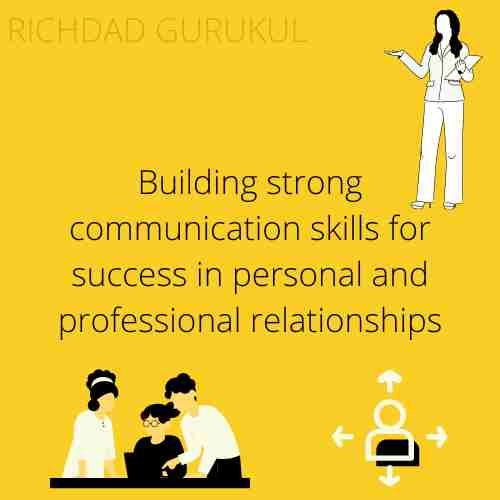Building strong communication skills for success in personal and professional relationships
Effective communication is a crucial skill to have, both in our personal and professional lives. Communication enables us to connect with others, share ideas, collaborate, and build strong relationships. The ability to communicate well can help us achieve success in our personal relationships, careers, and other aspects of life.
However, not everyone is a natural communicator. Some may struggle with shyness, while others may have a hard time expressing their thoughts and feelings in a way that is easily understood by others. Fortunately, there are strategies that can help us develop strong communication skills and overcome any barriers that may be preventing us from effectively communicating with others.
One of the most important aspects of effective communication is listening. We need to listen carefully to others to understand their perspectives and needs. Active listening involves paying attention to the speaker, asking clarifying questions, and demonstrating that we understand what they are saying. By actively listening, we can avoid misunderstandings and build strong connections with others.
Another key aspect of communication is being clear and concise in our message. This involves choosing the right words, avoiding jargon, and being specific in what we are trying to convey. We should aim to communicate in a way that is easily understood by others, regardless of their background or level of knowledge in a particular field.
In addition to being clear and concise, effective communication also involves being empathetic and understanding. We should take the time to consider the other person’s perspective and feelings, and respond in a way that shows we care. By doing so, we can build stronger relationships with others and avoid unnecessary conflicts.
Another important aspect of communication is being assertive. This means expressing our needs and desires in a confident and respectful manner, while also being open to feedback and compromise. By being assertive, we can avoid misunderstandings and build stronger, more collaborative relationships with others.
Finally, it’s important to remember that effective communication involves not just what we say, but also how we say it. Nonverbal cues such as facial expressions, body language, and tone of voice can all impact how our message is received. Therefore, we should be mindful of our nonverbal cues and strive to communicate in a way that is clear, concise, and empathetic.
In conclusion, strong communication skills are essential for success in both our personal and professional lives. By actively listening, being clear and concise, empathetic and understanding, assertive, and mindful of our nonverbal cues, we can build strong relationships, avoid misunderstandings, and achieve our goals. With practice and effort, we can all develop effective communication skills and enjoy the many benefits that come with being a great communicator.

